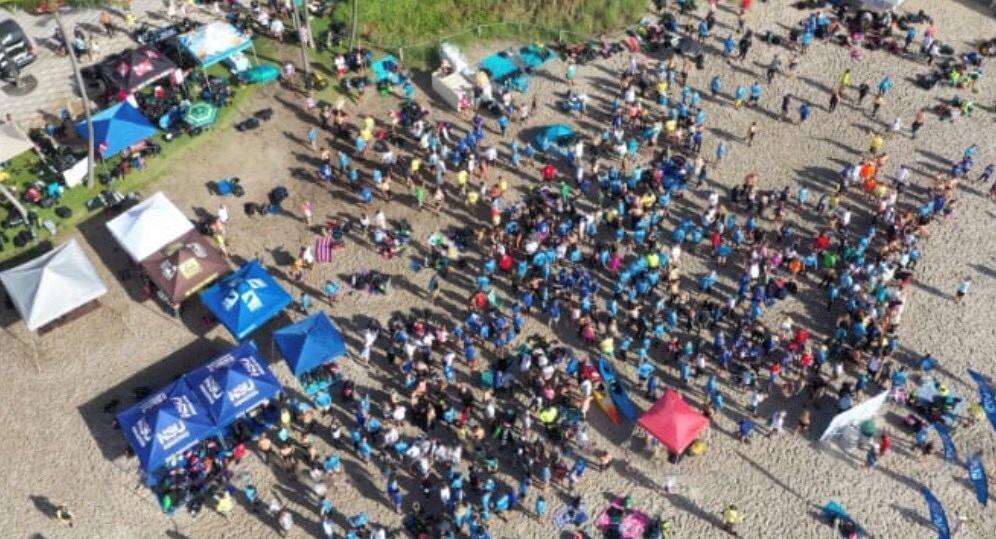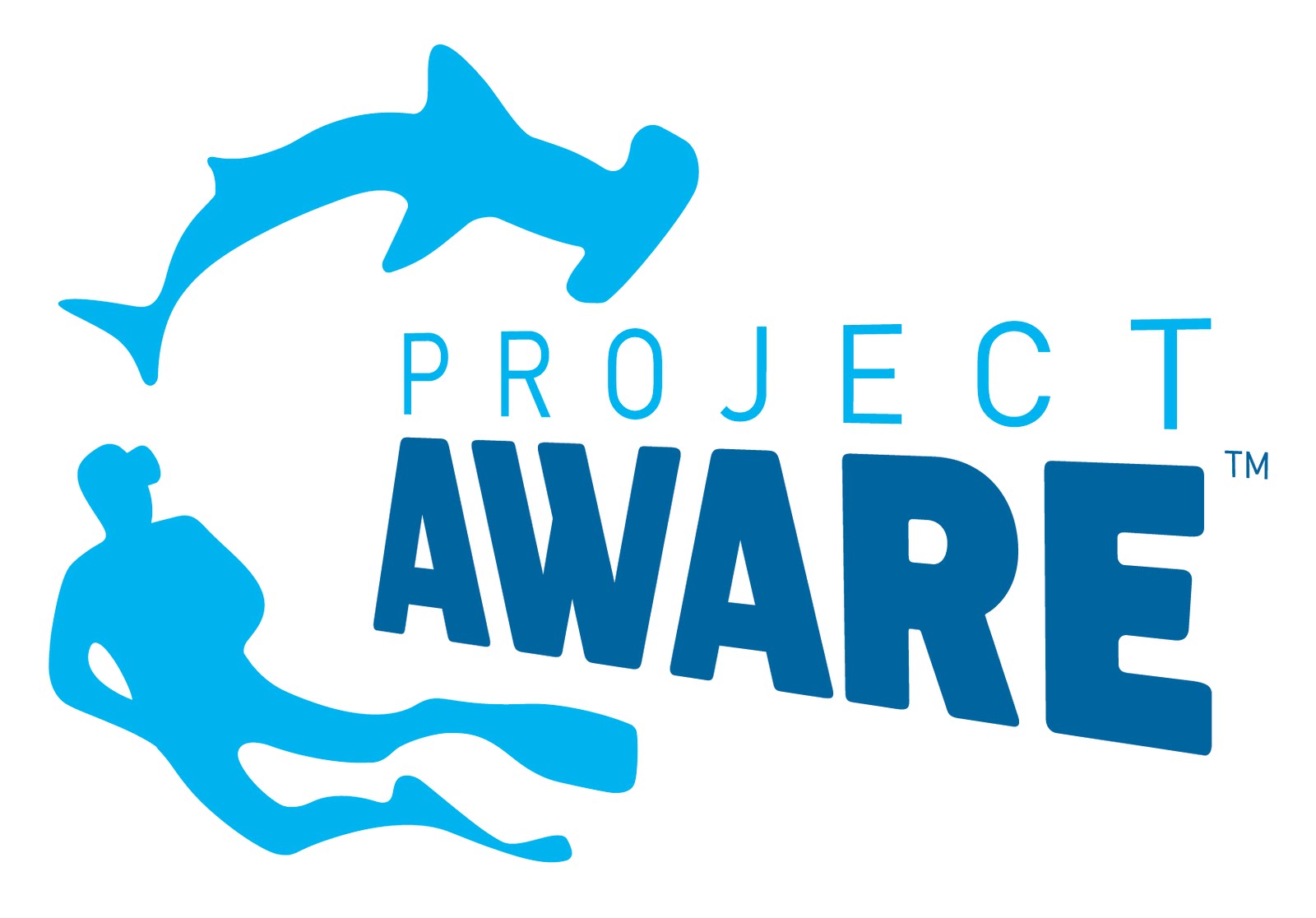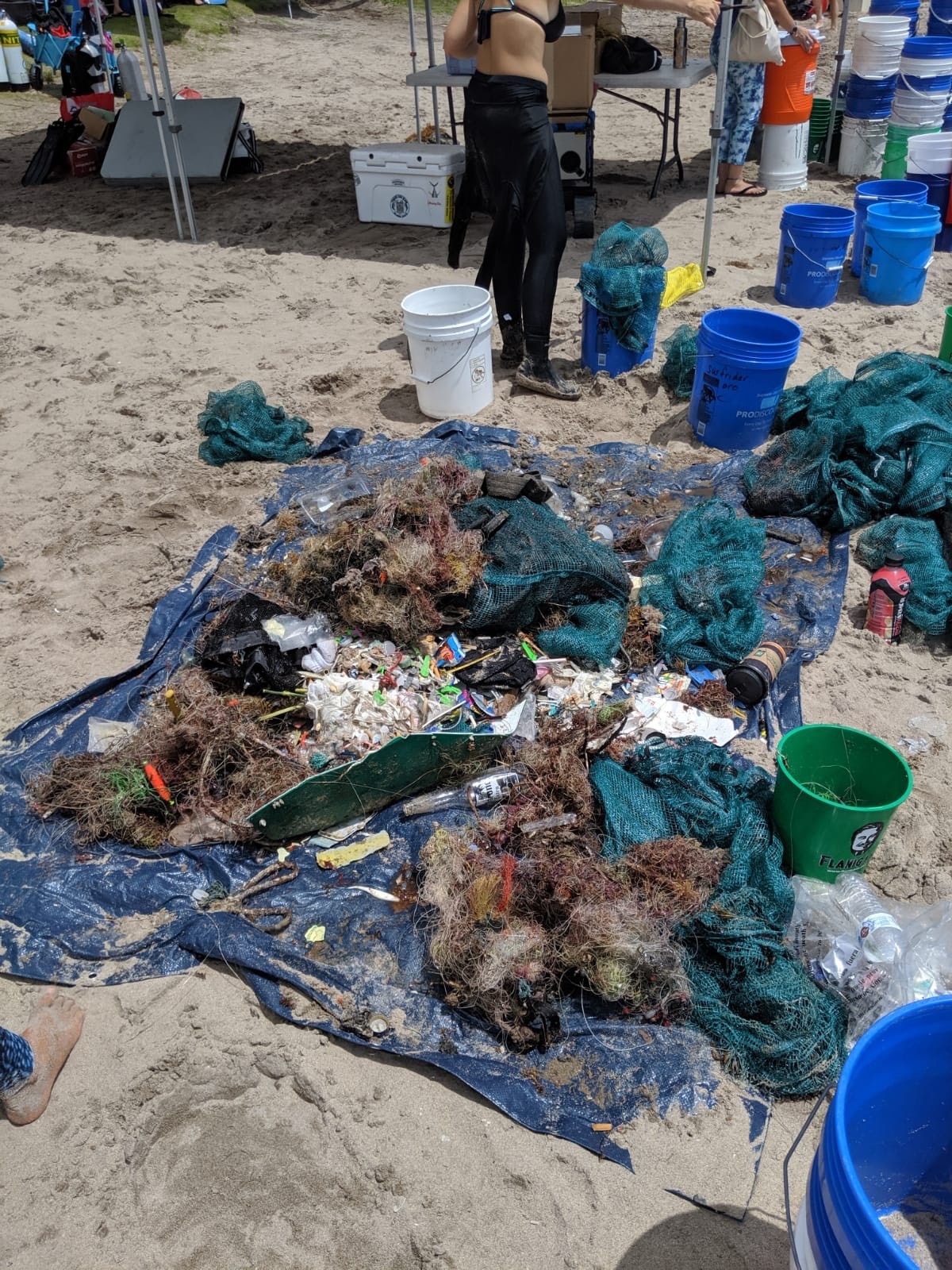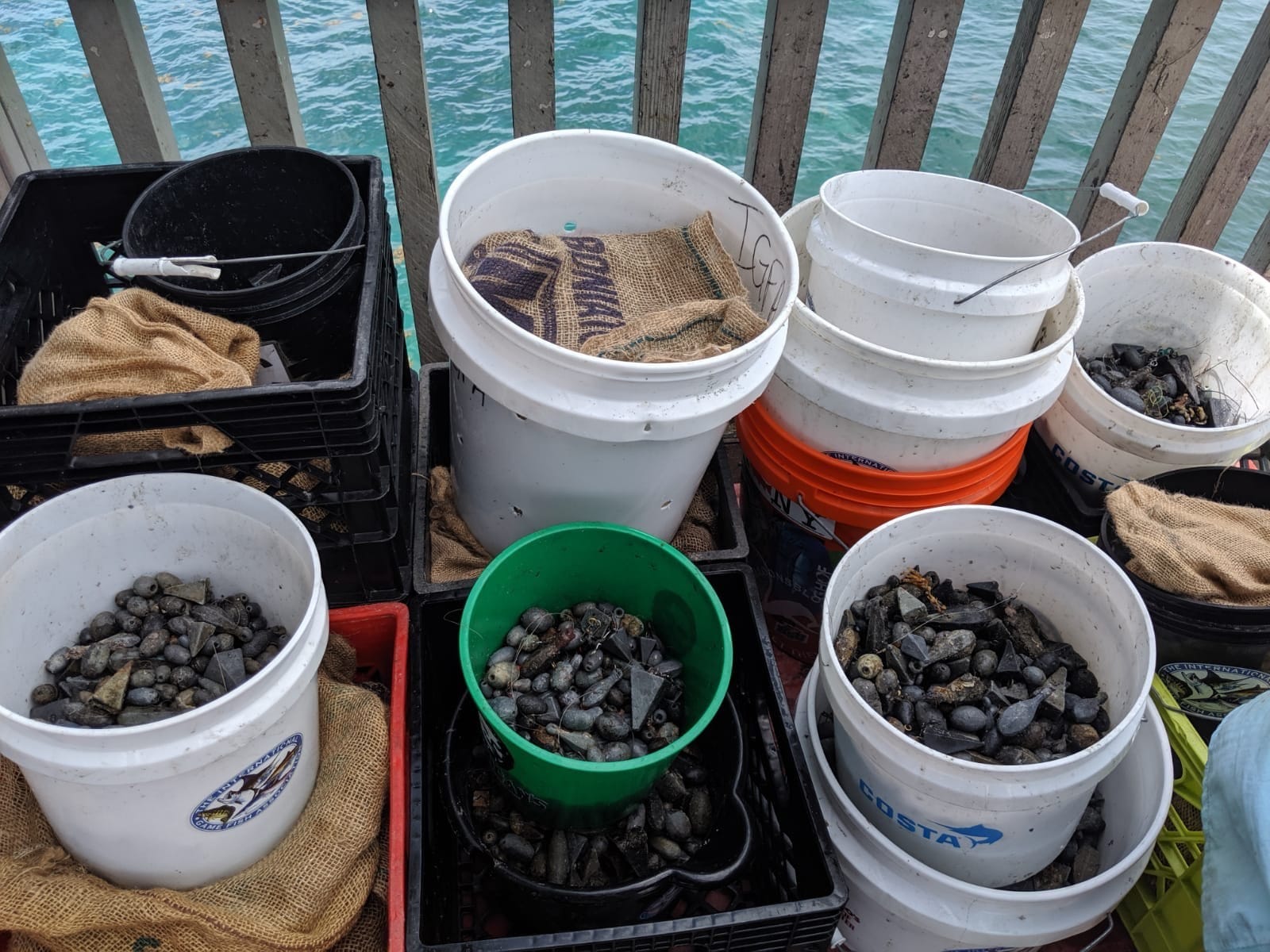Marine Life & Conservation
Record-Breaking Ocean Clean-up

 Divers unite to highlight the urgent need to stop the Ugly Journey of Trash and set a new Guinness World Record
Divers unite to highlight the urgent need to stop the Ugly Journey of Trash and set a new Guinness World Record
Ocean pollution and the amount of plastic in the sea is an ever-growing talking point but unfortunately, it’s also an issue that continues to be too often ignored. In a bid to change the “out of sight, out of mind” attitude, Dixie Divers, a PADI® dive centre committed to making a difference, has found an inspiring way to highlight the urgent need to turn the tide on the plague of plastic in our ocean with a Guinness World Record.
Supported by Project AWARE® and PADI®, the 2019 edition of the annual Save Deerfield Beach Event, organized by Dixie Divers in Florida on June 15, aimed to show that conservation brings more people together now than ever before. Hundreds of divers signed up to the event and came together to put their scuba diving skills to good use.
Guinness World Record adjudicator, Michael Empric, who conducted the official scuba diver headcount, announced that 633 dive clean-up volunteers had taken part in the event.
“One by one by one… A world record is broken. 633 divers. 3200lbs of fishing gear. Over 9,000 pieces of marine debris reported to Project AWARE. To say today’s collaboration of The World Record Clean-up Event hosted by Dixie Divers was a success is an understatement” commented Jack Fishman, Project AWARE Conservation Officer.
The day ended with a huge crowd of beachgoers and dive enthusiasts greeting with cheers announcement that the Guinness World Record for the biggest ocean clean-up had been broken.
The record for the most divers taking part in an underwater clean-up was held by Ahmed Gabr, a former Egyptian Army scuba diver. He brought a team of 615 divers to the Red Sea in Egypt in 2015.
The majority of the debris removed by participating dive volunteers, as part of the Save Deerfield Beach Event, was recorded and reported to Project AWARE’s flagship citizen science program – Dive Against Debris®. The program aims to empower scuba divers to remove marine debris from the seafloor and report data on the types, quantities, and locations of materials collected. To date, over 50,000 divers from 114 countries have taken part in this citizen science program in an effort both to clean up the ocean and build evidence of the global marine litter crisis.
The marine debris data collected by the volunteer divers who took part in the Dive Against Debris® survey dives at the Deerfield Beach Pier will now go through thorough quality review before the results are added to the global Dive Against Debris map.
“What an amazing day for conservation and an amazing day for the dive community” added Jack Fishman. “We are overwhelmed by the success of Dixie Divers’ event but we want to emphasize that you don’t need to take part in an event to make a difference. We all have the power to create positive change for the ocean each day and every time we dive”.
For more information about getting involved, check out Latest Campaigns. Join ocean adventurers worldwide. Make Every Dive a Survey Dive and say No to single-use plastic to help stop the Ugly Journey of Trash at the source.
Marine Life & Conservation
Paul Watson Released as Denmark Blocks Japan’s Extradition Bid

Renowned anti-whaling activist Paul Watson has been released from custody in Greenland after spending five months in detention. Denmark’s Justice Ministry rejected Japan’s request for his extradition, citing insufficient guarantees that his time already served in custody would be credited against any potential sentence.
The 74-year-old Canadian-American was arrested on July 21 in Nuuk, Greenland’s capital, when his ship docked to refuel. His arrest was based on a 2012 Japanese warrant related to a 2010 encounter in Antarctic waters. Japan alleged Watson obstructed operations and caused damage to a whaling research ship during efforts to disrupt illegal whaling. Watson has consistently denied these claims, maintaining his commitment to marine conservation.
Denmark, which oversees extradition matters for Greenland, concluded that while the legal conditions for extradition were met, the lack of assurances from Japan regarding time-served credit made extradition untenable.
In a video shared by his foundation, Watson expressed gratitude and relief, saying, “After five months, it’s good to be out… and good to know they’re not sending me to Japan.” He added that the most difficult part of his time in custody was being separated from his two young sons.
Watson is a pioneering figure in marine conservation, known for founding the Captain Paul Watson Foundation in 2022 after decades of activism with the Sea Shepherd Conservation Society. His bold efforts to defend marine life have earned him widespread support, including from celebrities and conservationists. His work has also been featured in the acclaimed reality TV series Whale Wars.
Watson’s lawyer, Jonas Christoffersen, praised the decision, stating, “We are happy and relieved that Paul Watson is now free.” He added that Watson is eager to reunite with his family and continue his vital work.
The arrest occurred while Watson’s vessel, the M/Y John Paul DeJoria, was en route to the North Pacific with a team of 26 volunteers to intercept a Japanese whaling ship. His foundation described the arrest as politically motivated and emphasized that Watson’s actions were focused on ending illegal whaling practices.
Japan resumed commercial whaling in 2019 after leaving the International Whaling Commission, asserting that whale meat is a cultural tradition. Conservationists, however, continue to challenge these practices, highlighting their impact on marine ecosystems.
Despite the challenges, Watson remains steadfast in his mission to protect marine life and bring attention to whaling practices. His dedication to ocean conservation has made him a globally respected advocate for the environment.
Marine Life & Conservation
12 Days of Zero-Waste Fish-mas

This holiday period, the Marine Conservation Society, the UK’s leading ocean membership charity, invites you to make some simple changes to eating fish this Christmas to help our seas.
Dr Kenneth Bodles, Head of Fisheries and Aquaculture at the Marine Conservation Society, said, “During the festive season, our consumption increases, but so does waste. Sustainability isn’t just about where food comes from – it’s also about how you use it. By reducing waste and making the most out of your seafood, you’re not only taking steps to be more ocean-friendly, but can also help to cut costs during what is often one of the most expensive times of the year”.
The Marine Conservation Society has compiled twelve tips on how to consume seafood sustainably with zero-waste this Christmas:
Buy whole fish instead of fillets
Instead of fillets, consider buying whole fish such as salmon, hake, or lemon sole. By adopting a “nose to tail” approach with cooking, whole-baked fish not only feeds a crowd, but also helps to minimise waste and maximise sustainability by using up every part of the animal, including bones, skin, and fat.
Make fish stock
Leftover fish bones or shells can be put to good use by boiling them to make a nourishing fish stock or bisque. This can be frozen and preserved for later use and makes for a flavourful base in a soup.
Make your own fish pâté
Avoid waste by turning leftover fish, such as smoked mackerel or salmon, into a delicious pâté by blending with cream cheese and lemon. Perfect when paired with crackers.
The sustainability of salmon and mackerel varies depending on where and how it is caught or farmed. For more information on green-rated options, check the charity’s Good Fish Guide.
Buy frozen
By purchasing seafood that is frozen or vacuum-packed, this helps to reduce waste by extending the shelf life of your food.
Fish pie
If you’re wondering what to do with leftover cooked fish, why not opt for a classic fish pie with mashed potatoes, leeks, and a cheesy sauce? A sure crowd pleaser on Boxing Day.
Use the head
Don’t forget the fish head! The meat is incredibly tender and flavourful. The charity recommends a cod’s head curry or recreating Fallow’s renowned cod’s head in siracha butter.
By stretching your ingredients further, not only is this a more sustainable way to enjoy seafood, but also cost-effective by repurposing leftovers and cooking creatively.
Boxing Day brunch
Mix leftover kippers or smoked salmon with scrambled eggs for a tasty, zero-waste, Boxing Day brunch.
For best choice, make sure you buy kippers, or herring, from the North Sea and the North Irish Sea.
Zero-waste storage
A top tip from the Marine Conservation Society to avoid waste is freezing fish offcuts to save for future use.
Crisp up the skin
Even leftover fish skin can be turned into a quick savoury snack by crisping it up in an air fryer with a little olive oil and salt.
Anchovies two ways
Leftover anchovies can either be blended with butter to make a delicious anchovy butter or tossed into pasta for a hit of umami flavour.
The charity recommends opting for anchovies caught in the Bay of Biscay for best choice.
Fishcakes
For an easy, zero-waste meal, leftover seafood trimmings can be mixed with mash and fried in breadcrumbs to make fishcakes.
Pickled mussels
Try pickling mussels in 1:1 vinegar and water, with a dash of sugar for a sustainable, zero-waste snack that can be enjoyed well beyond the festive season.
Mussels farmed in the UK are a seafood superhero. Grown using low-impact methods and harvested by hand, they get all the food they need from the sea around them. This makes them one of the most sustainable, ocean-friendly, and cost-effective seafood options.
Players of People’s Postcode Lottery have raised £6.6M towards the Marine Conservation Society’s vital work in making seafood more sustainable.
Laura Chow, Head of Charities at People’s Postcode Lottery, said: “Fish is a festive favourite for many, but making sustainable choices when it comes to how we buy and eat seafood makes all the difference for our ocean. Support from players of People’s Postcode Lottery has helped the Marine Conservation Society further its sustainable seafood work, so that we can all enjoy healthier, better protected seas.”
The Marine Conservation Society encourages you to make sustainable seafood choices a year-round habit, not just for Christmas. To check how sustainable the seafood on your plate is, you can visit the charity’s Good Fish Guide. The Guide helps consumers and businesses identify the most sustainable seafood using a simple traffic light system, based on where and how species are caught or farmed. Green is the best choice, amber means improvements are needed, and red indicates fish to avoid buying.
Zero-waste gift idea
Why not embrace a zero-waste Christmas by gifting a membership to support marine conservation? It’s a meaningful, low-waste gift that helps protect our ocean for generations to come. Memberships start from as little as £5 a month – the price of a sandwich and drink from your local coffee shop.
Find the latest sustainable seafood advice for wild-caught and farmed seafood on the Good Fish Guide, downloadable to your phone from www.mcsuk.org/goodfishguide.
-

 News3 months ago
News3 months agoIconic SS United States to become the World’s Largest Artificial Reef
-

 Blogs2 months ago
Blogs2 months agoScubaverse Christmas Gift Guide 2024: Day 4
-

 News2 months ago
News2 months agoSanta Divers take the Plunge for Charity
-

 Blogs2 months ago
Blogs2 months agoScubaverse Christmas Gift Guide 2024: Day 1
-

 News3 months ago
News3 months agoDiscover Turquoise Divers and Media Luna Beach & Dive Resort: A Premier Diving and Relaxation Destination in Roatan
-

 Blogs2 months ago
Blogs2 months agoScubaverse Christmas Gift Guide 2024: Day 5
-

 Blogs2 months ago
Blogs2 months agoScubaverse Christmas Gift Guide 2024: Day 2
-

 News3 months ago
News3 months agoToucan Diving at Plaza Beach and Dive Resort Bonaire Introduces PADI Mermaid Training





